INTERNING IN PARIS: A Light-Filled Revelation
By Sojourner Ahébée
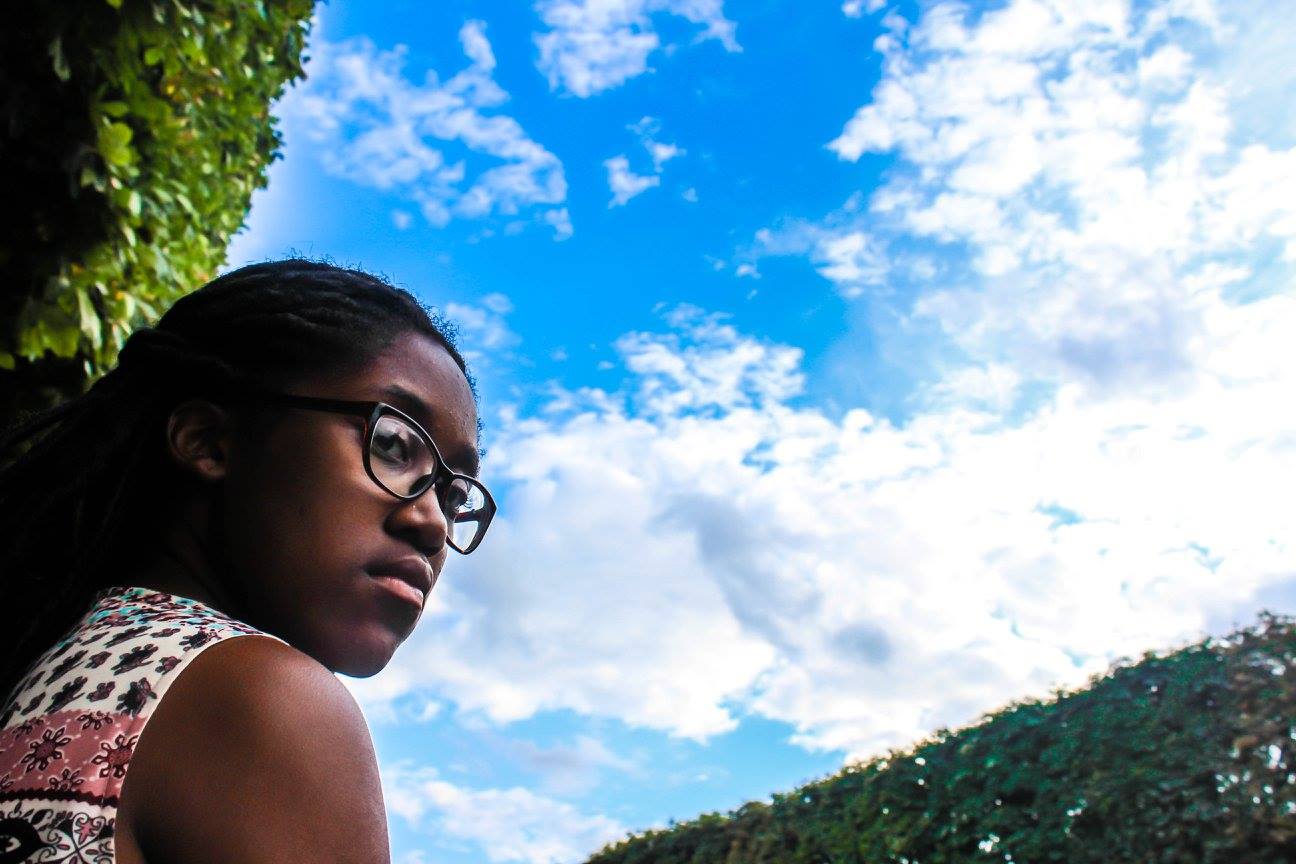
Sojourner and blue Paris skies – Image courtesy of Kira Bursky
Paris has a hold on me and I return to it often. When I visited this summer, I wanted to uncover a Paris that included the history of black freedom and struggle. I wanted to uncover a Paris that treated those histories as valid and whole. And I wanted to explore a Paris that used those histories to make the contemporary Black presence in the city a coherent one.
It was these desires that led me to apply for work as an intern at the Wells International Foundation (WIF).
Last winter, I participated in a study abroad program through my university and had the opportunity to live in Paris for ten weeks. During that visit, I had the pleasure of seeing an exhibition of paintings by Beauford Delaney, which was organized by Dr. Wells and her foundation. Delaney was an African-American visual artist who expatriated to Paris in the 1950s. Though his work left a great impact on Paris, the artist became virtually forgotten over time. Dr. Wells’ exhibition marked the first time many of the works in this show had been seen by the general public.
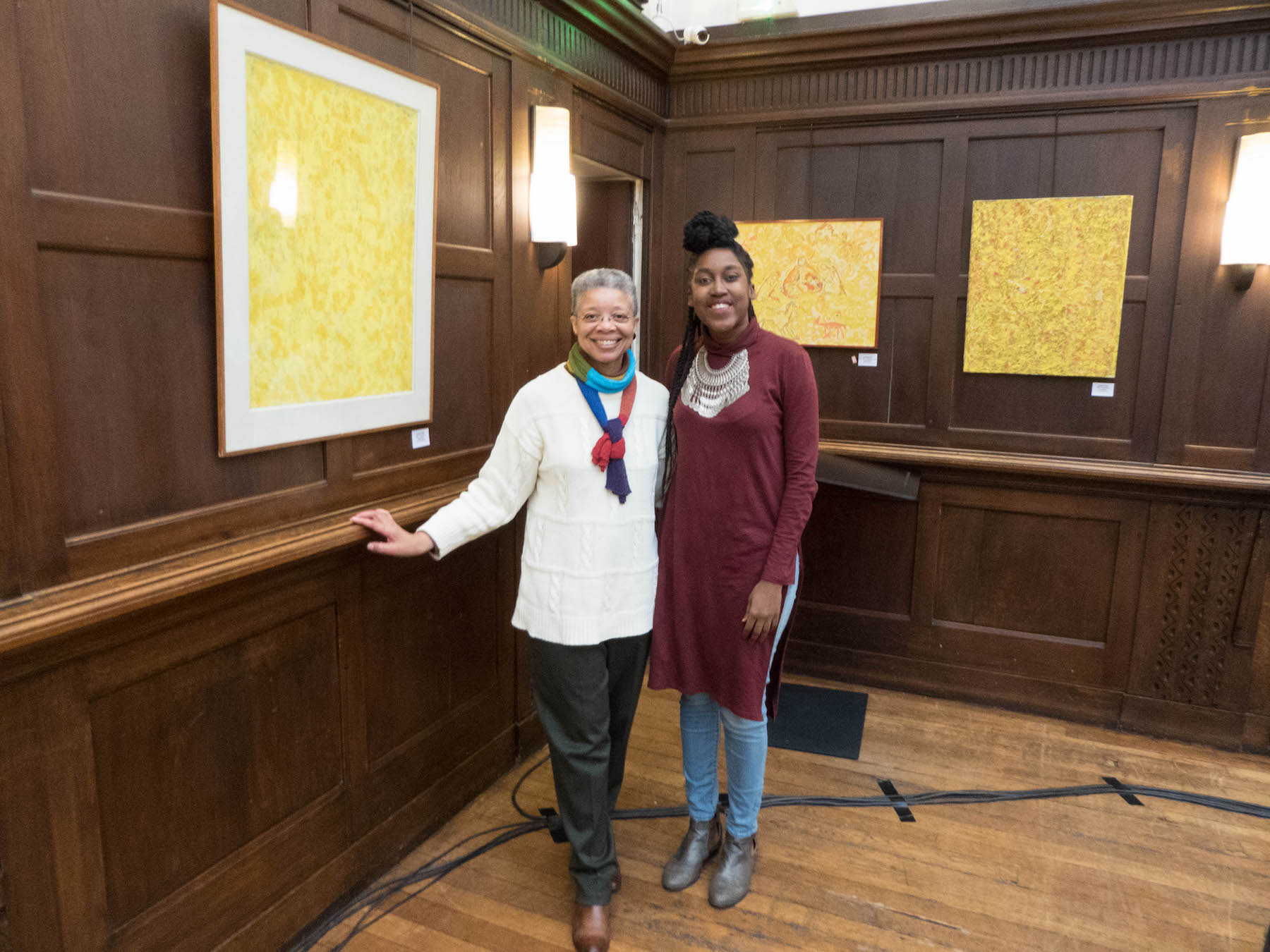
Sojourner and WIF Founder and CEO Monique Y. Wells at the Beauford Delaney: Resonance of Form and Vibration of Color exhibition – Image courtesy of Discover Paris!
My internship with the Foundation was nothing short of magical! It mainly revolved around a series of creative and research-driven projects that explored the impact of contemporary African diasporic communities in Paris as well as black communities of the past on the city.
One of the most exciting aspects of my work was learning how to curate digital spaces that center on big questions and themes about identity in France for black peoples. As the Foundation is home to a series of original content blogs, I was asked to generate work each week for one or more of these online publications. This meant seeking out cultural events in the city to review and thinking about local and national current events that related to black communities in Paris. A personal favorite was a blog post I wrote on the 2016 French Olympic women’s judo team, which was composed largely of Black women from France who are of African and Caribbean descent. In the article, I traced the history of Black women and their shared history with performance in France. I reflected on much of the trauma the demands of performance had placed on Black women and their bodies in Paris, but also the ways in which the Black judokas were re-imagining power, consent, and performance as they competed for France in the 2016 Rio Olympics.
Looking back on all the blog posts I wrote over the course of the internship, it becomes clear that any thoughtful engagement with Blackness in Paris often demands that you consult the past to understand the present and the future. I couldn’t think about identity for Black peoples in Paris without first consulting my ancestors.
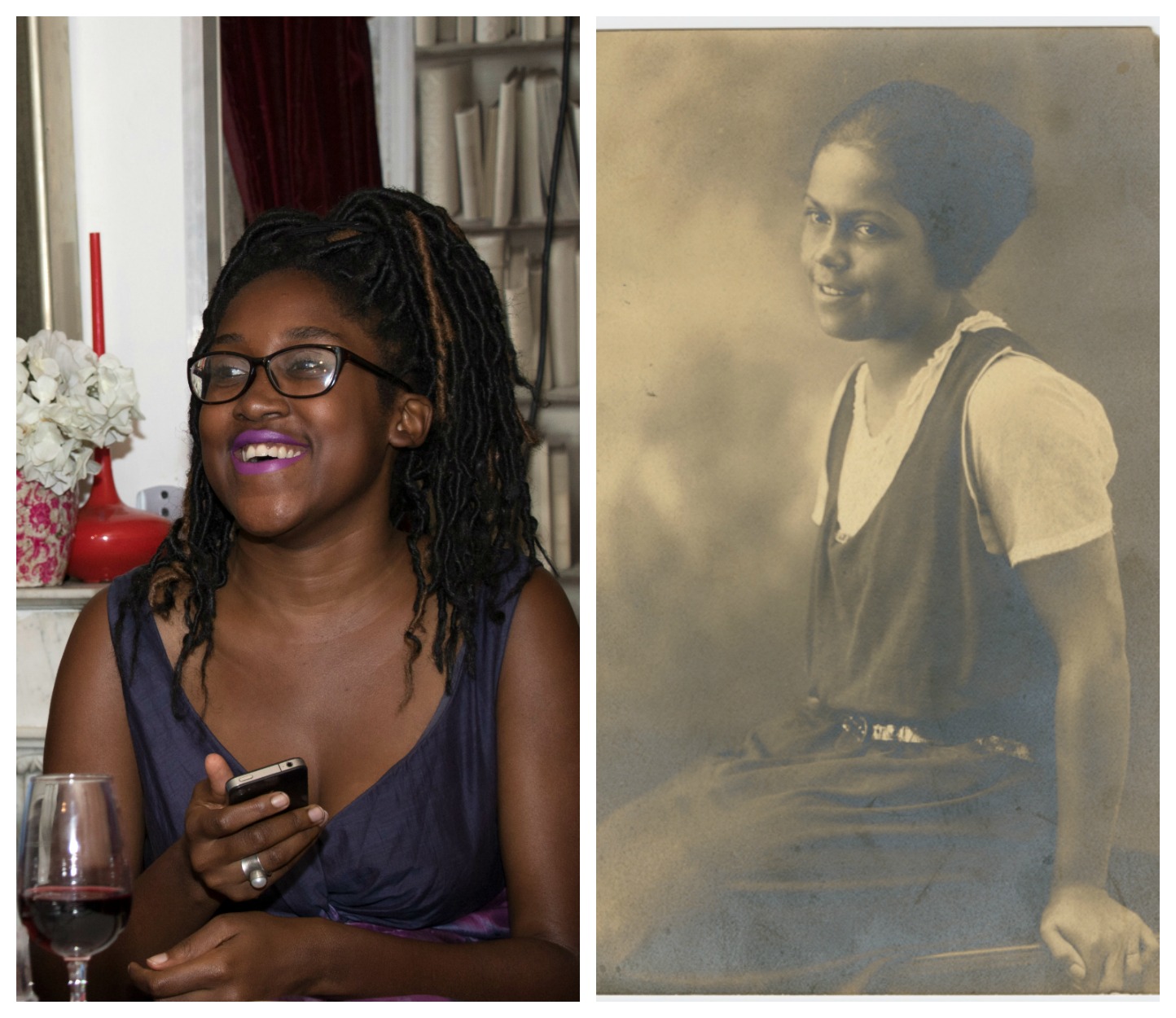
Two poets – Sojourner Ahébée and Gwendolyn Bennett* – Collage and image of Sojourner Ahébée courtesy of Discover Paris!
On one hand, this project allowed me to develop an extensive collection of restaurants at which to dine in Paris. But more importantly, it was a project about identity and love. It allowed me to celebrate the immensely creative culinary efforts of African diasporic peoples as they incessantly work to preserve their cultures, while providing mouthwatering dishes for our consumption.
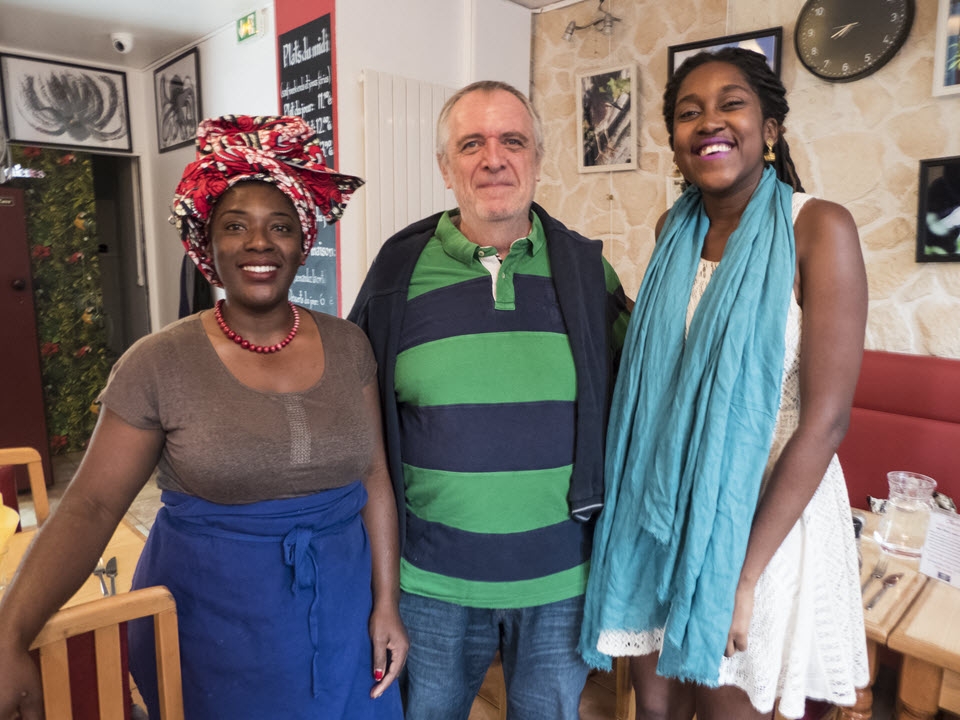
Edith Gnapié and Jean-Benoit Chauveau (co-proprietors) and Sojourner at Ohinéné, an Ivory Coast restaurant in Paris – Image courtesy of Discover Paris!
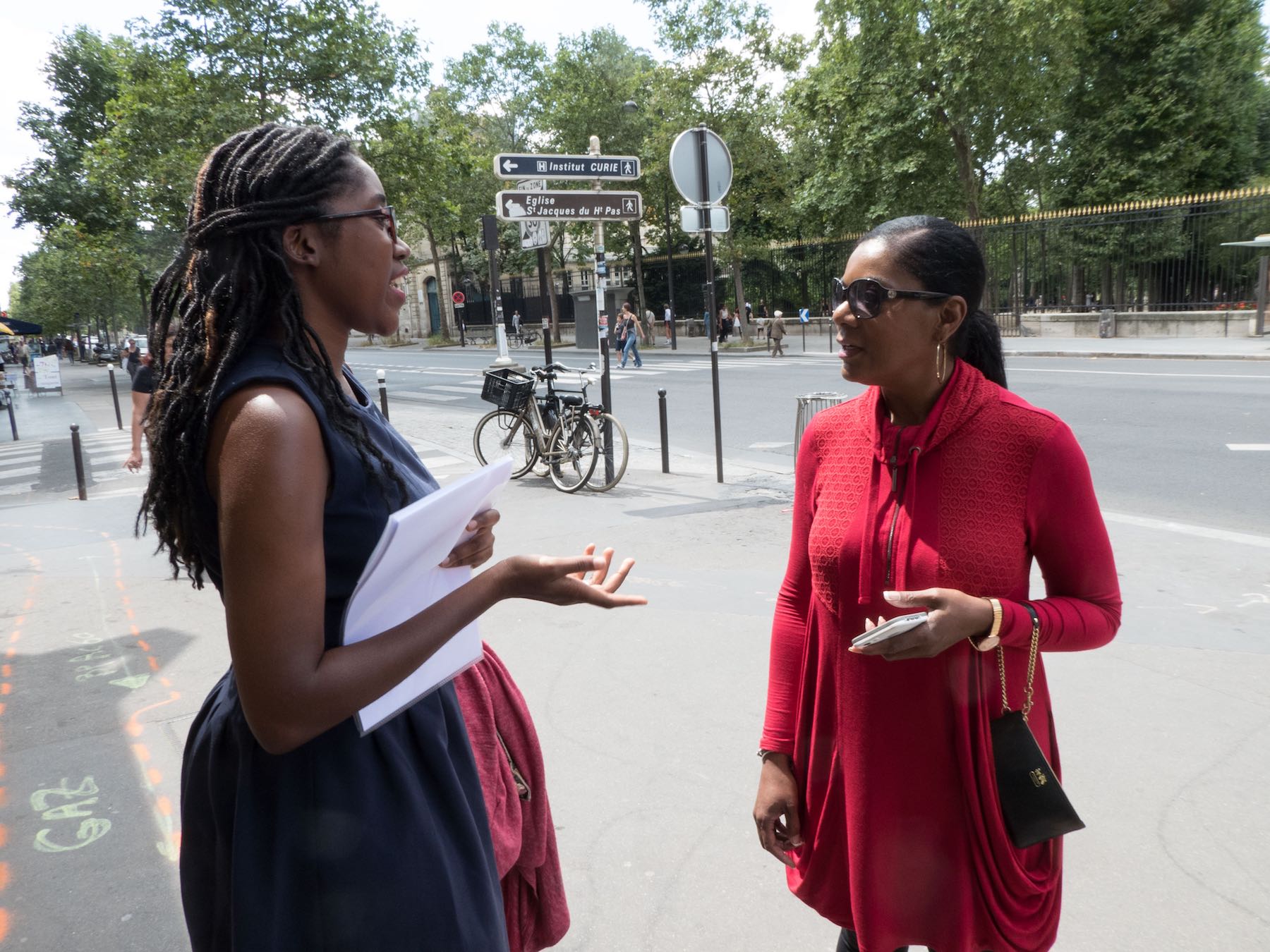
Sojourner (left) talks with a participant on the Luxembourg Garden walk – Image courtesy of Discover Paris!
To view Sojourner’s video,
Reflections on Paris Noir, in which she talks about three places in Paris that had a profound impact on her stay, click here.Read more of Sojourner’s work at Sojourner Ahébée.